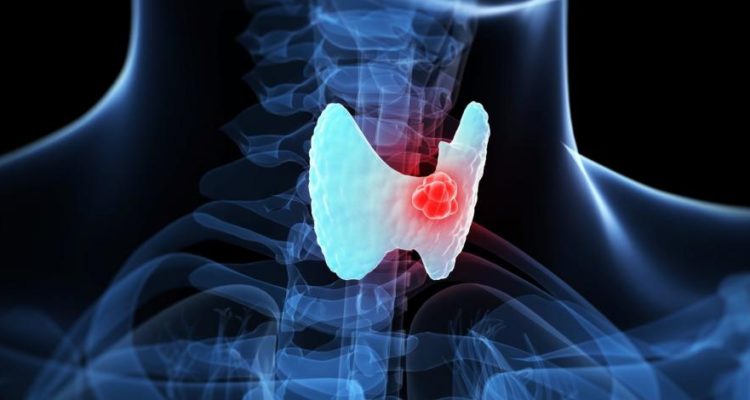ThyroidPrint: Thyroid Cancer Diagnostic Test

Dr. Hernán González, UC School of Biological Sciences
Abnormal growth of thyroid cells can cause the formation of nodes which in turn can favor the appearance of thyroid tumors. In these cases, patients must undergo a fine needle aspiration biopsy (FNA or FNAB) to determine whether the tumor is benign or malignant.
Seventy percent (70%) of all FNA biopsies performed are benign, while 20% are indeterminate and only 10% end up being malignant. Surgery is recommended as a preventive measure for all patients diagnosed as “indeterminate.”
The problem with that, however, is that only a quarter of those cases actually result in cancer, which means that three out of every four of these interventions are unnecessary, not to mention that they are expensive and saddle patients with lifelong hormone supplements.
The test developed by Dr. Hernán González as a solution to this situation, is able to detect more precisely whether the nodes are benign or malignant, thereby avoiding a large number of unnecessary thyroid removals. This technology was created within the framework of the BMRC-Chile Biomedical Consortium.
This invention—called ThyroidPrint®—consists of a genetic signature that analyzes 10 genes in the FNA sample using an algorithm that can predict with 97% certainty whether a node is benign or malignant. This way physicians are able to recommend to patients with benign nodes that they go in for a clinical follow up as an alternative to surgery. The bottom line is that ThyroidPrint will prevent thousands of surgeries and be a tremendous source of relief for those patients.
The study was carried out by the following faculty members from our University’s Cancer Surgery Department: Dr. Hernán González; biologist Rodrigo Martínez; PhD in Science Soledad Urra; pathologist Antonieta Solar; radiologists Francisco Cruz and Tatiana Arias; and medical student Sergio Vargas.
The Thyroid Print technology has successfully raised nearly 8 million dollars in public and private funding and has been applied to more than 60 patients in Chile and Argentina. It will also be expanded to Colombia and Uruguay thanks to a GeneproDX spin off.
